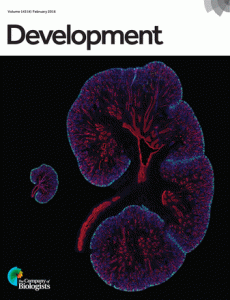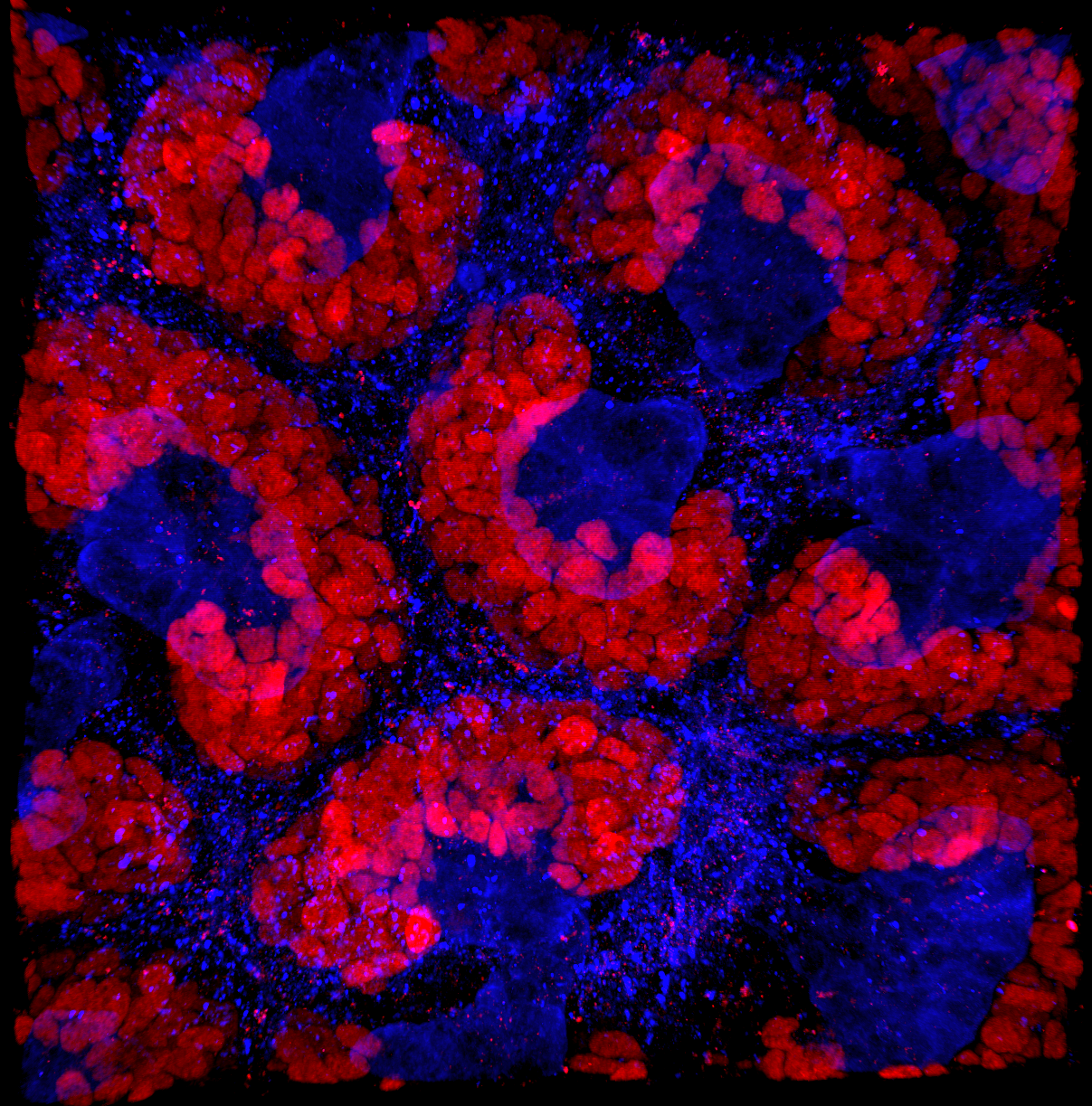Research
The central theme in the O’Brien Lab is to study the regulatory networks required to maintain nephron progenitors-from signals to epigenetic and transcriptional regulation-with the goal of understanding how their misregulation alters kidney development and final nephron numbers.
Our current projects are focused on the following Three themes:
Modeling a Recurring Wilms Tumor-Associated Mutation in iPSCs derived Kidney Organoids
We are interested in how epigenetics and regulation of transcription signals contribute to the malignant transformation of nephron progenitors into Wilms’ tumor-a form of kidney cancer that primarily affects children-and how developmental networks are utilized/altered in these tumor cells.
Uncovering The Podocyte Foot Process
The lab also focuses on podocytes, a highly specialized cell type of the nephron filter. These cells have a unique and elaborate architecture with interdigitating foot processes that help form the filtration barrier of the kidney. We are interested in identifying and comparing the cellular and regulatory networks required for podocyte development versus maintenance, and how their networks are altered during kidney disease and aging.
Establish Roles of The Neurovascular System During Kidney Development
Kidney neurovascular networks are critical to maintaining mammalian physiology and homeostasis. Despite their important roles, we know little about how they form and pattern in the embryonic kidney or how neurovascular interactions affect kidney development. Our lab is interested in understanding the mechanism behind proper renal innervation and vascularisation as well as their importance for proper nephrogenesis.
We utilize a combination of developmental and cell biology, biochemistry, modern genetic tools, high-throughput sequencing, immunohistochemistry, and imaging in our research.

Arterial Vasculature and Glomeruli in Mouse kidney

